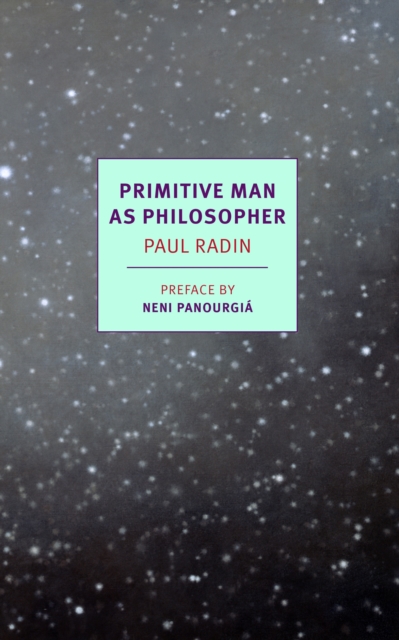Paul Radin (1883-1959) was born in Lódź in what is now Poland but immigrated with his family to Elmira, New York, in 1884. As a doctoral student in anthropology at Columbia University, he studied under Franz Boas, who had developed many of the modern methods of the discipline. While at Columbia, Radin began doing fieldwork with the Ojibwa and, in particular, the Winnebago Indians of Wisconsin, an ethnographic study that would continue for the rest of his life. He produced a series of landmark books and monographs documenting the tribe's culture and customs, including
The Winnebago Tribe (1923),
Crashing Thunder: The Autobiography of an American Indian (1926),
The Road of Life and Death: A Ritual Drama of the American Indians (1945), and
The Trickster: A Study in American Indian Mythology (1956). Dedicated to studying and preserving the oral traditions and philosophies of both primitive and modern societies across the United States and the world, Radin pursued his research at more than a dozen universities and institutions, including the University of California at Berkeley, Black Mountain College, the C.G. Jung Institute in Switzerland, and Brandeis University, his final appointment. In the 1930s, he organized an ambitious ethnographic project with the Works Progress Administration to document the folk narratives from dozens of minority communities in the California Bay Area, while his later work focused on the languages of various Mexican-Indian communities. His books
Primitive Religion: Its Nature and Origin (1937),
The World of Primitive Man (1953), and
Primitive Man as Philosopher (1927), collections of interviews that he conducted with members of dozens of "primitive" cultures, are classics in the field of anthropology.
John Dewey (1859-1952) was one of the leading American thinkers of the twentieth century. A psychologist and educational philosopher, he was one of the founders of the New School for Social Research. He is the author of more than two dozen books, including
Democracy and Education (1916),
Art as Experience (1934), and
Freedom and Culture (1939).
Neni Panourgiá is a writer, translator, and professor of anthropology at the New School for Social Research. She is the author, most recently, of
Dangerous Citizens: The Greek Left and the Terror of the State. She lives in New York City.










